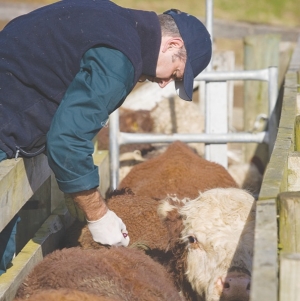It’s warning comes as it continues to investigate the causes of new cases of the disease discovered on six dairy farms in Taranaki, and two in South Canterbury, since the New Year.
“Protecting the pastoral production sector from TB requires constant vigilance, especially when bringing new animals, such as service bulls, onto a property,” says TBfree’s national disease manager, Kevin Crews.
Crews says the majority of cattle and deer herd infections can be traced back to infected possums in TB risk areas, but stock movement-related infections still occur.
Tests of wildlife around the two clusters of affected farms in Taranaki came back free of TB suggesting a movement related infections there, and while wildlife test results from the Rangitata area in South Canterbury haven’t yet been reported, Rural News understands stock movement is suspected as the infection route there too.
“Don’t be complacent and don’t think that TB is not out there. Make sure you do your checks and you will know you have done everything you can to prevent TB from infecting your herd,” says Crews.
Commercial bull lessors should ideally organise a TB test for all bulls before marketing and leasing them to herdowners, so as many animals as possible can be tested in one go.
There is no fee to TB test service bulls and it gives the receiving herdowner some peace of mind that the leased animal is clear of the disease, says TBfree.
If there is any doubt around a bull’s TB status, herdowners should contact TBfree on 0800 482 4636 to find out if a recent test has been completed, book a test and learn about the animal’s disease history.
It will advise if the bull has resided in a Movement Control Area, where all animals are legally required to be TB tested at least 60 days prior to being moved.
TBfree’s also reminding herdowners of their NAIT obligations during calving. Registering calves at farm of birth enables lifetime traceability of the animals, and legally they must be tagged within six months of birth.

















